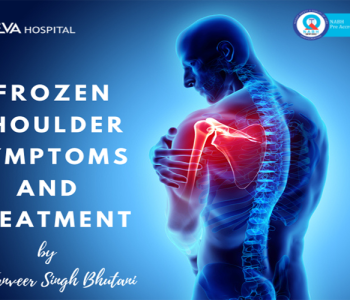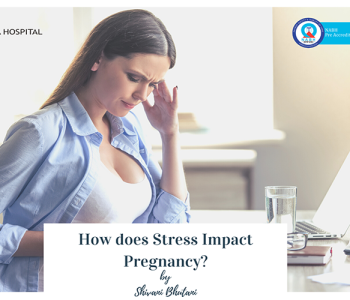 Eva Hospital
Eva Hospital
What is Frozen Shoulder-Symptoms and Treatment?
While picking up a heavy object or while driving, if you experience sudden stiffness and the pain travels around the shoulder to the extent that you cannot move your arm backward, you are probably under the effect of a frozen shoulder. Frozen shoulder is a painful condition that involves pain in the shoulder joint. It starts as mild pain (Stage 1) and gradually escalates to severe pain (Stage 2) and finally goes away (Stage 3).
Frozen shoulder is also known as Adhesive Capsulitis. ‘It is a self-limiting condition and it may go away on its own, says Dr. Tanveer Bhutani, the best orthopedic from EVA Hospital, Punjab.
He says you might find simple activities like washing hair, driving a car, and changing gears, or even something as basic as combing hair difficult. For diagnosis and treatment, consulting the best orthopedic at the earliest is the wisest decision.
What are the Causes of Frozen Shoulder?
Dr. Tanveer says that a frozen shoulder may result in scar formation inside the shoulder capsule. Frozen shoulder may occur because of inflammation, scarring, shrinkage, or thickening of the shoulder capsule. Sometimes even shoulder injury or sports injury may result in a frozen shoulder.
Women in the ’40s and ’50s are more susceptible to frozen shoulder after menopause or pre-menopause. Diabetes, arthritis, and any kind of chest or breast surgery also enhance the chances of a frozen shoulder. Frozen shoulder can be diagnosed easily by a proficient orthopedic doctor.
What are the Symptoms and Diagnosis of Frozen Shoulder?
An increase in shoulder stiffness, immobility, and pain are the symptoms of a frozen shoulder. Dr. Tanveer says that examining the shoulder and moving it back and forth can be a good signal of the extent of shoulder immobility. Patients with frozen shoulders find sleeping also difficult under these circumstances.
For proper diagnosis, along with testing the range of motion of the arm, the orthopedic may advise you to undergo a physical examination, blood tests, and X-ray examination of the shoulder.
In extreme cases, a special X-ray called arthrography may have to be performed where an X-ray contrast dye is injected into the shoulder joint. This will exhibit if the shoulder capsule is shrunken enough to be deemed frozen shoulder.
MRI also plays a significant role in the diagnosis of capsulitis and cuff arthropathy. MRI provides reliable image indicators of frozen shoulders.
The thickening of the ligament, the thickening of the joint capsule in the rotator cuff interval, and the tilting of the fat triangle are important findings of the MRI which help in the potential treatment of the frozen shoulder.
The patient is asked for the family medical history to rule out any other hereditary health issue.
What is the Treatment of Frozen shoulder?
The first and foremost treatment of frozen shoulder is over-the-counter anti-inflammatory drugs like aspirin or ibrufen.
They are known to give quick relief to the frozen shoulder. Sometimes the orthopedic may prescribe stronger medicines also.
You will be advised to start physiotherapy treatments and exercises including stretches and various strengthening exercises. The condition of the frozen shoulder may worsen and become permanent if proper treatment is not followed.
The process of physiotherapy may take a few weeks to a few months to heal the frozen shoulder. Ice packs, motion exercises, electric stimulation, and strengthening exercises will collectively provide relief to the frozen shoulder.
In the worst cases, the most experienced orthopedic, Dr. Tanveer Bhutani recommends Arthroscopy for Capsular Release.
This is a minimally invasive surgery that helps in relieving pain and loss of mobility. The surgeon inserts a radiofrequency probe in the shoulder suffering from adhesive capsulitis.
The radiofrequency waves cut the tissue capsule around the shoulder joint and allow free shoulder movement. This helps in relief from pain because of acute frozen shoulder.
You will be strictly advised to avoid jerks, sudden motions, and lifting heavy objects during the recuperation period. Caution is the word and you must exercise precautions during the recovery period.
In the worst of cases, you may be advised arthroscopic surgery to treat frozen shoulder. Though this is a rare protocol, the surgery can help in reducing the excruciating pain in the shoulder.
Final Words
You must not take even the slightest symptoms of frozen shoulder easily and must consult the orthopedic at once. Get in touch with the best orthopedic in Punjab, Dr. Tanveer Bhutani, EVA Hospital, and seek the most genuine suggestions. Frozen shoulders can take a few months to heal. Little care and proper medication can go a long way in relieving the acute pain of a frozen shoulder.

